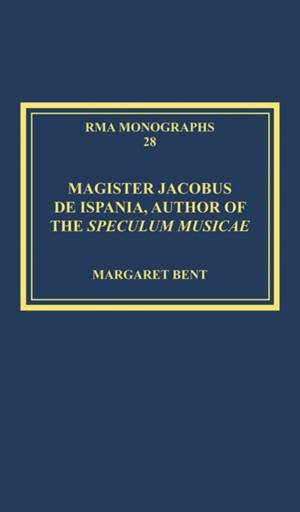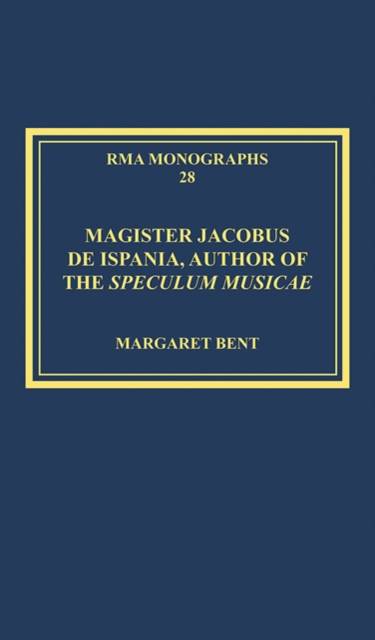
- Afhalen na 1 uur in een winkel met voorraad
- Gratis thuislevering in België vanaf € 30
- Ruim aanbod met 7 miljoen producten
- Afhalen na 1 uur in een winkel met voorraad
- Gratis thuislevering in België vanaf € 30
- Ruim aanbod met 7 miljoen producten
Zoeken
Omschrijving
The Speculum musicae of the early fourteenth century, with nearly half a million words, is by a long way the largest medieval treatise on music, and probably the most learned. Only the final two books are about music as commonly understood: the other five invite further work by students of scholastic philosophy, theology and mathematics. For nearly a century, its author has been known as Jacques de Liège or Jacobus Leodiensis. 'Jacobus' is certain, fixed by an acrostic declared within the text; Liège is hypothetical, based on evidence shown here to be less than secure. The one complete manuscript, Paris BnF lat. 7207, thought by its editor to be Florentine, can now be shown on the basis of its miniatures by Cristoforo Cortese to be from the Veneto, datable c. 1434-40. New documentary evidence in an Italian inventory, also from the Veneto, describes a lost copy of the treatise dating from before 1419, older than the surviving manuscript, and identifies its author as 'Magister Jacobus de Ispania'. If this had been known eighty years ago, the Liège hypothesis would never have taken root. It invites a new look at the geography and influences that played into this central document of medieval music theory. The two new attributes of 'Magister' and 'de Ispania' (i.e. a foreigner) prompted an extensive search in published indexes for possible identities. Surprisingly few candidates of this name emerged, and only one in the right date range. It is here suggested that the author of the Speculum is either someone who left no paper trail or James of Spain, a nephew of Eleanor of Castile, wife of King Edward I, whose career is documented mostly in England. He was an illegitimate son of Eleanor's older half-brother, the Infante Enrique of Castile. Documentary evidence shows that he was a wealthy and well-travelled royal prince who was also an Oxford magister. The book traces his career and the likelihood of his authorship of the Speculum musicae.
Specificaties
Betrokkenen
- Auteur(s):
- Uitgeverij:
Inhoud
- Aantal bladzijden:
- 232
- Taal:
- Engels
- Reeks:
Eigenschappen
- Productcode (EAN):
- 9781472460943
- Verschijningsdatum:
- 28/07/2015
- Uitvoering:
- Hardcover
- Formaat:
- Genaaid
- Afmetingen:
- 149 mm x 245 mm
- Gewicht:
- 544 g

Alleen bij Standaard Boekhandel
+ 391 punten op je klantenkaart van Standaard Boekhandel
Beoordelingen
We publiceren alleen reviews die voldoen aan de voorwaarden voor reviews. Bekijk onze voorwaarden voor reviews.











